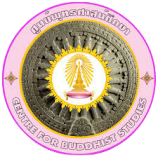Buddhism and Human Genetic Research
Abstract
What I am trying to do in this paper is to explore how Buddhism, especially Theravada Buddhism as adopted in Thailand, responds to the advancements of human genetic research in the modem world. Buddhism has a certain number of doctrinal beliefs normally differing from those in the theistic tradition, making Buddhism respond to genetic research in a certain way. The way Buddhism responds to genetic research could be characterized as a kind of humanistic view. This kind of view is mainly based on human wisdom and rational investigation of the problem. Belief as normally understood in terms of religion plays a lesser role in Buddhist ethics. The following will show the positions of Buddhism on the problems raised by genetic research. As the concept of personhood plays the key role in the debates over human genetic research, we will start with this point. And as human genetic research raises many issues, it is impossible to explore all of them; the paper will focus on some of them - human cloning and the use of embryonic stem cells in medical practice - as the examples for discussion.







